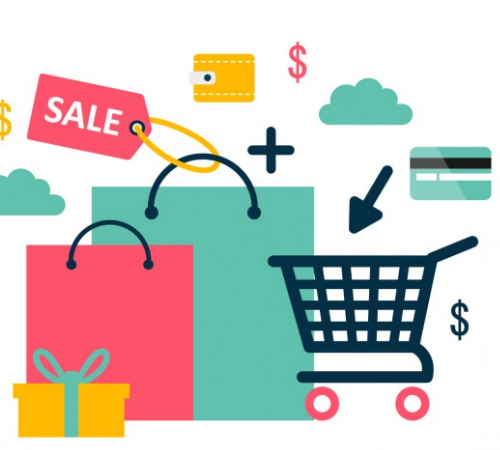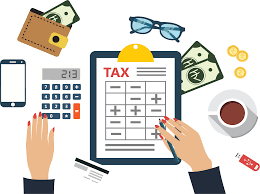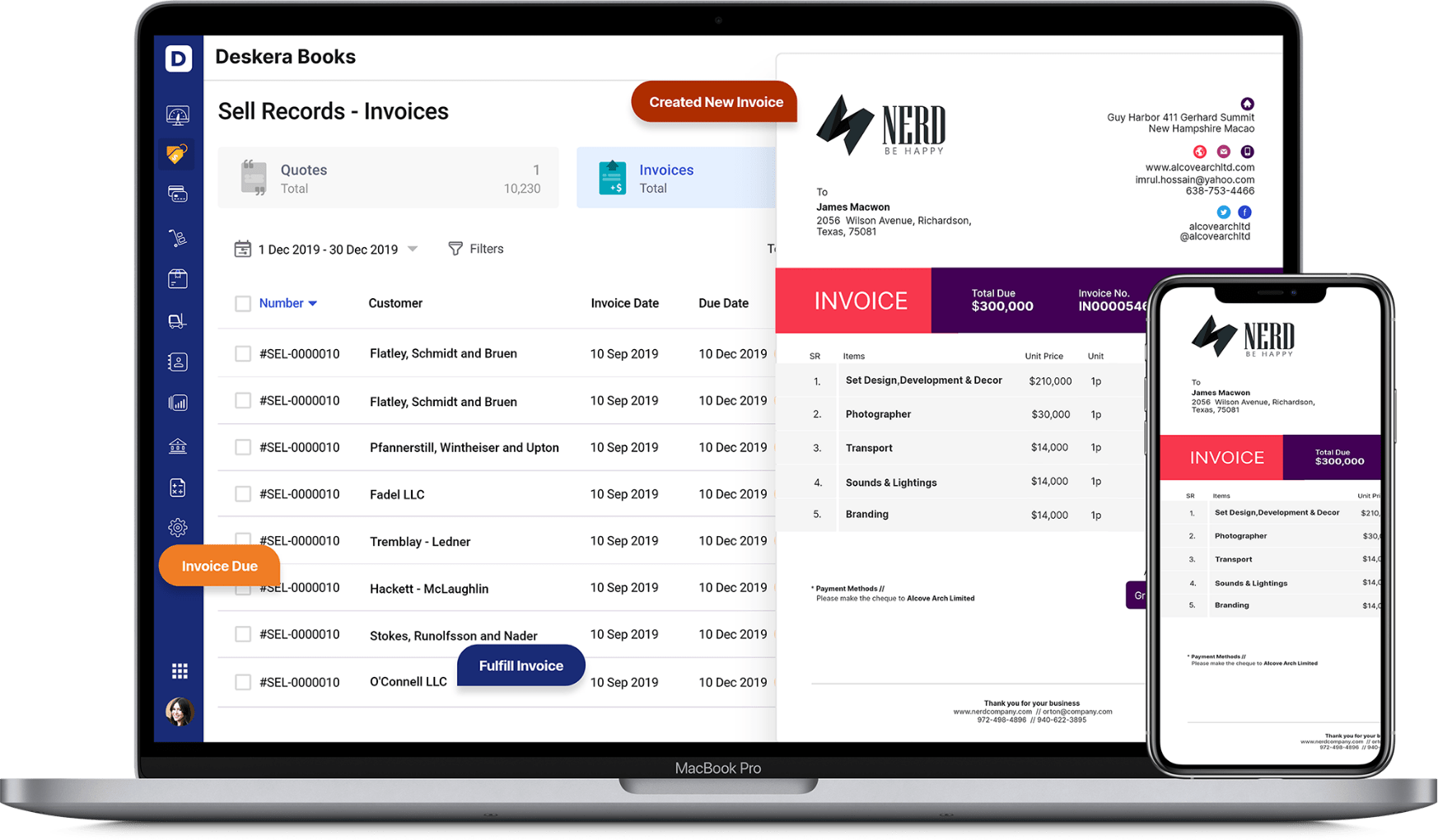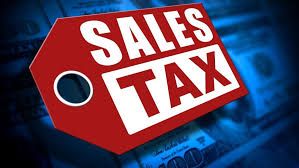Sales tax is the levy imposed upon the sale of goods and services. Generally, laws allow the seller to collect funds for the consumer's tax at the point of purchase. Hence, sales tax is a consumption tax, meaning that consumers only pay sales tax on taxable items they buy at retail.
If a tax on goods or services is paid to a governing body directly by a consumer, it is called a "use tax". Often laws provide for exempting certain goods or services from sales and using tax, such as food, education, and medicines.

There are different kinds of sales tax such as:
- Manufacturer's sales tax - a tax on sales of tangible personal property by manufacturers and producers
- Wholesale sales tax - a tax on the sales of wholesale items of tangible personal property, in a form packaged and labeled for shipment or delivery for final users and consumers
- Retail sales tax - a tax on sales of retail of tangible personal property to final consumers and industrial users
- Gross receipts taxes - is levied on all sales of a business. They have been criticized for their pyramiding or cascading effect. This when an item is taxed more than once as it makes its way from production to final retail sale
- Excise taxes - is applied to a narrow range of products such as gasoline or alcohol, which is usually imposed on the producer or wholesaler rather than on the retail seller
- Use tax - imposed directly on the consumer of goods purchased without sales tax, generally on goods purchased from a vendor not under the taxing authority's jurisdiction. Use taxes are usually imposed by states with sales tax but are usually enforced only for large items such as boats or automobiles
- Securities turnover excise tax - a tax on the trade of securities
- Value-added tax - in which tax is charged on all sales, hence avoiding the need for a system of resale certificates.
- FairTax - is a proposed federal sales tax intended to replace the US federal income tax
- Turnover tax - similar to a sales tax, but applied to intermediate and possibly capital goods as an indirect tax
Let us learn what sales tax is and get further information about many of the different types that you may pay. Let's discuss in this article where all that money goes and how it is used to offer services you benefit from every day.
What is the Definition of Sales Tax?
When you purchase an item at groceries, the total final price paid is usually more significant than the price you see on the sign mentioned on the aisle, and this is because of added sales tax. Sales tax is the additional amount of money you need to pay based on a percentage of the selling price of goods and services purchased. For example, if you buy a new washing machine for $400 and live in an area where the sales tax is 7%, you would pay $28 in sales tax. Your total bill would be $428.
Total Sale Amount = Selling Price + Sales Tax
Sales tax is the indirect tax imposed on purchasing or selling of services or goods. It is the extra amount paid over and above the basic value of the services or goods being purchased by a consumer.
It is important to note that sales tax is not revenue that the seller gets to keep. The seller is merely collecting the tax as part of their agreement to do business in that city or state.

Every month or quarter, the seller will have to prepare forms and pay in the money they collected for taxes to the state or local government. There are different sales taxes, so let's look at a few of the most common.
Different Types of Sales Tax
Let us look further in detail into the different kinds of sales tax with examples below:
Retail Transaction
This is the most common tax people familiar with. This is one of the most common ways your state and local government generate revenue, and it often ranges from a few points to more than 10% of the cost of your goods. Each time a person goes shopping, you are paying retail tax. Buying paper towels, toothpaste, soda, and clothing will all have sales tax attached to the final price.

Vendor Privilege Tax
Vendor taxes are imposed on retailers as a cost of doing business in a state. It can also be looked at as licensing tax to operate a business. Vendor tax is different from the retail sales tax because it is charged to the seller rather than the consumer. Companies usually have the option of paying this tax out of their pocket or passing it to customers in the form of higher prices.

Excise Tax
Excise tax is usually charged on items that are not considered necessary for survival. Cigarettes and alcohol typically have an excise tax tied to them. These taxes are paid by the people who produce them or the wholesalers. Excise taxes land up, raising the price we pay for these items. For example, a bottle of wine that usually costs $9 may have an excise tax of $3. The result is that you will pay $12 for that bottle of wine.

Use Tax
This is charged to consumers when retail sales tax wasn't charged but probably should have been. You are responsible for declaring and paying a use tax in your residing state when you purchase products from a catalog, television network, or internet site. However, this does not charge retail sales tax in the state in which you live.

Value-added, Gross Receipts¸ and Wholesale Tax
These are all additional methods the government authorities can use to raise revenue based on products and service's sales and production.
Sales Tax Formula
Sales tax which is applicable on a particular good or service, can be easily calculated by a simple formula as stated below:
Total Sales Tax = Total Sales X Sales Tax Rate
Before calculating sales tax, the following steps can be looked into:
- Add in all the prices of multiple items before calculating the sales tax
- Sales tax is always calculated as a percentage
- In some countries, sales tax varies from state to state, hence, the manufacturer or sellers has keep track of change in tax rates from the government
How Can You Mitigate Sales Taxes?
Companies can reduce the impact of sales tax on themselves and their customers by planning for all activities' tax consequences. Sales tax reduction or mitigation strategies can include the following options:
- Designing invoices - to reduce the taxable portion of a sale transaction. For example, a delivery charge is exempted if it is stated separately from handling and other taxable charges. You can use invoicing cloud softwares, like Deskera Books, which are are tax ready and suited for small businesses.

- New facilities - Jurisdictions with no sales tax or broad exemptions for specific company operations would be an obvious consideration in selecting a new manufacturing plant or a site, warehouse, or administrative office
- Delivery location - For businesses operating in several jurisdictions, choosing the best location to take deliveries can decrease or eliminate the sales tax liability. An item can be used in another jurisdiction with a lower tax rate or an exemption for that item. Companies can consider a temporary storage exemption that applies to merchandise initially accepted in a jurisdiction with a higher tax rate.
- Periodic review - for record keeping that is related to sales and use tax. Proper supporting detail, resale certificates, including exemption, invoices, and other records, should be available to defend the company in the event of a use tax and sales tax audit. Without the proper documentation, a seller can be held liable for the tax that is not collected from a buyer.
Conclusion
It is essential to understand how taxes affect your business and what tax software is best to use. If you use tax software like Deskera, you can easily integrate and automate sales tax calculations, reporting, and filings.




